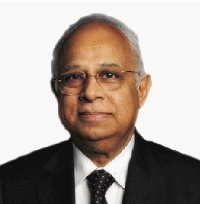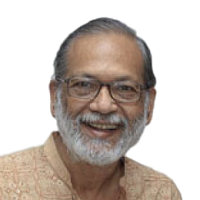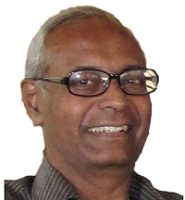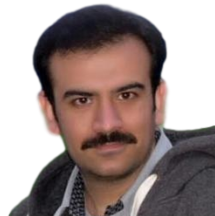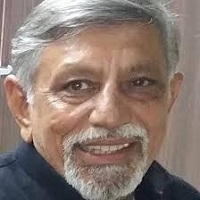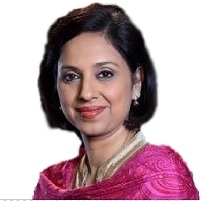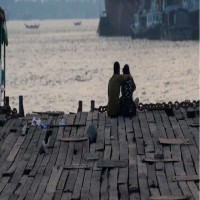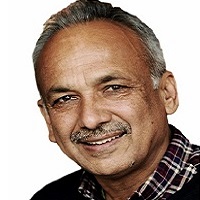“Until such time that the leaders of SAARC decide to leave bilateral
issues aside and address the common problems together in a workmanlike
manner to realise the enormous potential of the region, the SAARC will
remain a disappointment and an unrealised dream”.
Responses by Dr Palitha Kohona, the former Foreign Secretary and
Permanent Representative to the United Nations in NY.
Question: Are regional organisations, especially the SAARC in a region
like South Asia and the ongoing debate with the EU an obsolete
concept?
Dr. Palitha Kohona:Regional organisations are definitely not obsolete.
Admittedly, both the SAARC and the EU are confronting testing times
but there are other regional bodies which are serving their members
well and thriving. The ASEAN, CARICOM, GCC, to name a few. The EEC,
now the EU, has overcome many difficult challenges since its creation
in 1957 and evolved in an impressive manner. Britain’s decision,
albeit by a thin majority, to leave the EU does not reflect the real
feelings in the wider European region. Many countries have lined up
eagerly to join the EU. The recent elections in Georgia saw both
leading parties contending to govern the country expressing their wish
to join the EU.
Regional organisations, due to their very nature as groupings of
sovereign states, will be faced with difficult centrifugal forces from
time to time. This is unavoidable. But where the goal of an
organisation and its members is clearly to focus on the common good
and the majority of the people subscribe to this goal, the
organisation itself has found the means to survive and even prosper.
Despite the curious view expressed by the majority at the referendum,
in a broad economic sense, it could be argued that Britain has done
very well out of the EU. The EU continues to be Britain’s premier
trading partner taking the bulk of its product. It has been suggested
that the foot dragging associated with formally giving notice under
Article 51 of Britain’s intention to withdraw has something to do with
securing continuing benefits even after the withdrawal.
The SAARC was created in 1985 by some of South Asia’s visionary
leaders with the lofty goal of serving the common needs of the region.
But a critical and unavoidable factor with the SAARC is India,
especially its difficult bilateral relations with some of the members
of SAARC. India is a behemoth in every sense of the word and India’s
needs and sensitivities have had an overbearing impact on the SAARC
project. (e.g. India’s nominal GDP exceeds USD 2.3 trillion while the
entire region’s GDP is only around USD 2.9 trillion).While we are
focused on the current tensions between India and Pakistan, it is
useful to recall that similar situations, including those involving
India’s bilateral relationship with Sri Lanka, have marred past
summits and impacted on the SAARC’s progress. If the SAARC is to
succeed, it is important for all its members to strive to achieve its
vital common goals while recognising that there will be continuing
bilateral issues which should be addressed separately.
Question: In your opinion has the SAARC summit been successful in an
overall perspective? If so why? If not why?
Dr. Palitha Kohona: The SAARC, in my view, is not an outstanding
success given its almost 30 year existence. It seems to have learnt
little from the experience of other regional organisations. Regular
Summits have helped the organisation to move forward in some limited
areas of common interest. For example in establishing a South Asian
university, promoting cultural exchanges and addressing food and
energy security. Furthermore, an agricultural centre, a development
fund, etc. have been established. Agreements concluded to advance free
trade (SAFTA) and mutual assistance in criminal matters have some way
to go to have any worthwhile impact.
A stronger and better resourced Secretariat may help to move the
organisation forward. The experience of the EU and the ASEAN suggest
that the respective secretariats played a seminal role in
strengthening the two organisations. The EU, in particular, was
blessed with outstanding visionary leaders who remained committed to
the EU project despite a history of bitter and, often, bloody rivalry.
The EU secretariat, despite much criticism, has played a crucial role
in advancing the goals of the organisation and strengthening it.
There should be a much deeper commitment at political level to make
the SAARC work and realise its fundamental goals. In the absence of
such a commitment from its leaders, the Summits will provide only a
symbolic opportunity for them to meet and exchange pleasantries or
chastise each other on bilateral issues. The current suspicions and
the emphasis on bilateral issues will not auger well for the future of
the organisation.
Question:Do you believe the potential of the summit will ever
materialise until tensions between India and Pakistan are resolved?
Dr. Palitha Kohona: The SAARC summit will remain a hostage to
bilateral issues at least and until the leaders decide to separate the
bilateral issues from the common objectives of the organisation. The
major hurdle remains the tensions between India and Pakistan. The
future of the SAARC will also depend on how much importance is
attached to realising the common goals such as eliminating poverty,
achieving literacy, ensuring energy and food security, countering
terrorism, fostering cross border trade, and achieving overall
prosperity. As long as the members of the SAARC, especially the larger
ones, continue to place their primary emphasis on developing relations
outside the region for strategic, security and trade reasons, and
prioritising bilateral issues, the organisation, which has
demonstrated considerable potential at times, will be destined to limp
along with really little or no impact on the lives of the ordinary
masses. Of course, the SAARC suffers from the inherent disadvantage of
having a mighty giant in its midst with its overriding concerns and
interests which tend to leave the other members insecure in its
shadow. The absence of a balance, political, economic and otherwise,
among the members of the SAARC will remain a crucial factor.
Question: Has the summit benefited Sri Lanka? Or have proceedings been
dominated by more influential countries?
Dr. Palitha Kohona: It is not only the summit but the organisation
itself is dominated by the larger members, especially India. If this
organisation is to be a success, it is important for the bigger
members to take serious account of the needs and sensitivities of the
smaller members. There was a time when this was actually happening,
and the organisation enjoyed higher levels of credibility. The periods
when India (2007), Sri Lanka (2008) and Bhutan (2010) chaired the
organisation in the early 2000s could be described as one of its
business like phases.
During the early 2000s, requests for observer status increased. The
US, the EU, China, Australia, Japan, South Korea,Iran are among the 9
who are observers. China applied for observer status and, and after a
delay, was admitted. Russia, South Africa, and Turkey are waiting. The
interest in observer status displayed at the time, would suggest that
the Organisation was being taken seriously by the big powers.
A member’s role in an organisation such as SAARC, depends on the
resources and effort it is willing to commit. Sri lanka, despite its
relatively small size, was enjoying a diplomatic high at the time. Sri
Lanka used the SAARC summit to propose India’s Kamelesh Sharma for the
Secretary Generals position in the Commonwealth and obtained the
concurrence of SAARC leaders. Similarly, it was centrally active in
promoting concepts such as the SAARC food bank, the development fund,
the SAARC university, SAARC cultural events, etc. But even these
practical successes of the organisation will fade in to the mists of
history if bilateral issues are permitted to dominate at the expense
of common interests.
Question: If regional organisations such as the SAARC are beneficial
what should hypothetically be the best that can be gained out of it,
keeping in mind the South Asian political climate? If these
organisations are not beneficial what is the alternative?
Dr. Palitha Kohona:The South Asian political climate,where bilateral
issues dominate, have held the SAARC hostage. This need not have been
the case. It is a region with over 1.7 billion people - an growing
number with surplus spending power. It is also a region with rapidly
expanding economies, a rich cultural and religious diversity, vast
historical commonalities and a immense variety of natural resources,
and most importantly human resources.
All of these could have been mobilised to lay the foundation for a
thriving geographical bloc. Instead, the over-emphasis on bilateral
issues have stunted its potential. Until such time that the leaders of
SAARC decide to leave bilateral issues aside and address the common
problems and realise the common potential in a statesman like manner,
the SAARC will remain a sad and unrealised dream.
The alternative for the smaller members, such as Sri Lanka, might be
to develop other external relations. They can not be expected to
sacrifice their future prosperity until the bilateral issues of the
larger members of the organisation are resolved. But countries such as
Sri Lanka are better advised not to be too insensitive to historical
relationships which have withstood the test of time. Pakistan, for
example, has stood by Sri Lanka at some extremely difficult times.
- Asian Tribune -


